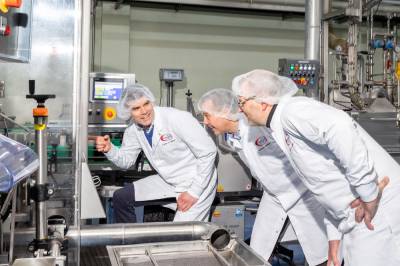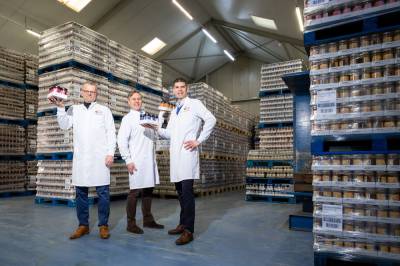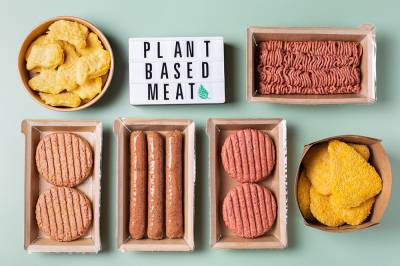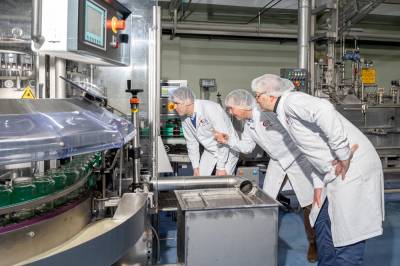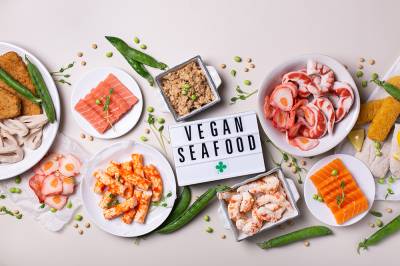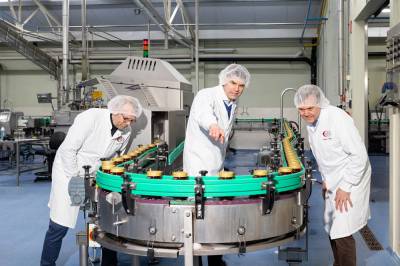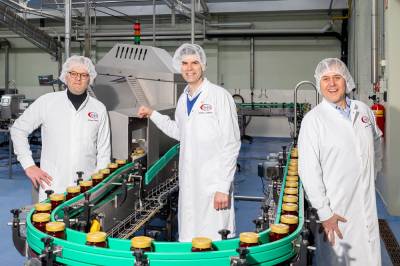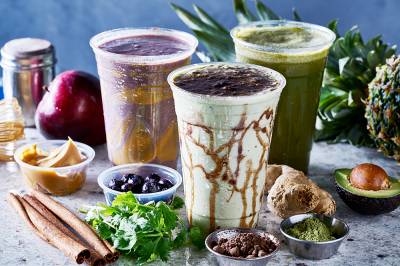
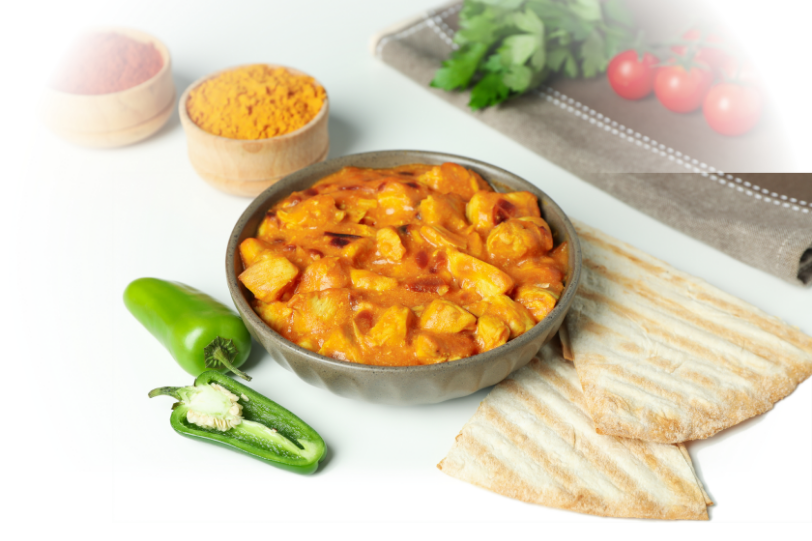





Make or buy The Critical Importance of the Make or Buy Decision in the Food Industry

In the rapidly evolving food industry, every business leader, from CEOs to Supply Chain Managers, faces a fundamental choice: produce in-house or outsource? This decision, often referred to as the 'make or buy' choice, is crucial for business operations and can have a significant impact on both the financial health and market position of a company.
The 'make or buy' decision goes beyond the simple choice between internal production of goods or outsourcing to external suppliers. It's a strategic consideration that affects various aspects of a business, including cost control, quality management, product innovation, and market competitiveness. This decision becomes even more complex due to the unique challenges and opportunities in the food industry, where changing consumer preferences, regulatory requirements, and technological advancements play a continual role.
Complexity and Common Misconceptions
One of the most common misconceptions about the 'make or buy' decision is that it's a one-time, static choice. In reality, it's a dynamic process that needs constant evaluation and adjustment in response to changing market conditions, business growth, and technological developments. Often we experience our clients already decided to produce the products in house, but after 3 years, once the volumes are intresting. To bridge the gap, comanufacturing is a must-have to enable launch in the first place!
Another misconception is that it's always more cost-effective to produce in-house to save expenses. This isn't always true, particularly for specialized products that require specific expertise or technology. The costs and complexity of setting up and maintaining such production processes can be substantial and not feasible for every company, especially smaller businesses or startups.
Additionally, it's often assumed that outsourcing is always the best option for rapid scaling. While outsourcing can indeed provide flexibility and scalability, there are risks associated with loss of control over production quality and dependency on external suppliers.
This blog post delves deeper into the 'make or buy' decision, aiming to equip leaders in the food industry with the insights and tools necessary to make this crucial choice confidently. We will explore the benefits and challenges of both options, and how Cibus Nexum can offer unique solutions and expertise to support businesses in their 'make or buy' journey.
Common Blunders and Challenges in the Make-or-Buy Decision
When navigating the make-or-buy assessment in the food industry, several common pitfalls can significantly impact the success and efficiency of your business. Recognizing and understanding these challenges is the first step towards making more informed and strategic decisions.
Top Mistakes to Avoid:
- Overlooking Long-Term Financial Implications: Focusing solely on immediate costs rather than considering the long-term financial impact.
- Ignoring the potential for future growth and scalability in decision-making.
- Neglecting Quality Control: Compromising on product quality when outsourcing, leading to brand reputation damage.
- Underestimating the importance of consistent quality in in-house production.
- Inadequate Market Research: Failing to thoroughly research market demand for new or improved products.
- Overlooking consumer trends and preferences which can guide the make-or-buy decision.
- Underestimating Operational Capacities: Not accurately assessing the company's current production capabilities and technological resources.
- Overlooking the need for specialized skills or technology in production.
- Poor Supplier Evaluation and Management: Choosing outsourcing partners without adequate vetting for quality and reliability.
- Neglecting ongoing supplier relationship management and communication.
- Ignoring Flexibility and Adaptability Needs: Overlooking the need for flexibility in production to respond to market changes.
- Failing to consider the ability to scale up or down as market demands fluctuate.
- Lack of Strategic Alignment: Making decisions that do not align with the overall business strategy and long-term goals.
- Ignoring how the make-or-buy choice affects other areas of the business, like marketing and sales.
- Underutilizing Expertise and Resources: Not leveraging external expertise in food production efficiency and food industry networking.
- Overlooking opportunities for collaboration and innovation in the foodservice market.
Alternative Approach: The FoodFlow Method by Cibus Nexum
FoodFlow Method
The FoodFlow Method
Discover the power of the FoodFlow Method - a revolutionary approach that transforms your food production. With this innovative method you optimize your processes, increase efficiency and achieve impressive results.

Brand / scaleup
Manufacturer
Curious about how the FoodFlow Method can lead your company to success? Download our whitepaper and discover the method behind this groundbreaking concept.
Cibus Nexum presents an innovative solution to the challenges inherent in the make-or-buy decision: the FoodFlow Method. This method is a unique blend of stages designed to optimize food production while addressing the common pitfalls of decision-making in this sector.
Advantages of the FoodFlow Method:
- Customized Strategy: Starting with a comprehensive 'Brief' phase, the FoodFlow Method tailors each step to your company's specific needs and values, ensuring that the final product is a true reflection of your brand.
- Efficient Outsourcing: The 'Search' and 'Match' stages leverage Cibus Nexum’s extensive network, connecting you with the best-suited manufacturing partners, thereby streamlining the outsourcing process.
- Quality Assurance: Incorporating quality audits and compliance checks, the method ensures that every product meets the highest standards, enhancing customer satisfaction and brand reputation.
- Supply Chain Excellence: The 'Deliver' phase fine-tunes the supply chain, ensuring smooth production and distribution, and reducing the likelihood of disruptions.
- Risk Reduction: Structured partner selection and collaboration significantly mitigate operational and reputational risks associated with outsourcing.
- Scalability and Adaptability: Designed for scalability, the method allows businesses to adjust production volumes in response to market demands, maintaining efficiency and quality.
- Sustainable Practices: Emphasizing sustainable production, the method aligns with consumer preferences for environmentally responsible products.
- By implementing the FoodFlow Method, businesses can navigate the make-or-buy decision with greater confidence, leading to improved efficiency, quality, and market responsiveness.
4. Detailed Process Description: The FoodFlow Method
The FoodFlow Method is a finely-tuned, multi-stage approach that transforms the way food companies handle production, from concept to market.
The Four Key Phases:
- Design
This initial phase involves collaboration to define product scope, requirements, and goals, ensuring a clear understanding of strategic objectives. This stage is the core of Make-or-Buy assessment - Find
Leveraging a vast network, Cibus Nexum identifies potential manufacturing partners, focusing on compatibility with your unique requirements. During this stage, a limited number of engaged suppliers may provide budget proposals, important for the business case viability
Usually this will be the moment to finalize the assessment and make a decision.
In the case of Buy , we seamlessly continue to the next stage to make it happen with the best fit contract manufacturer:
- Onboard
This phase involves in-depth engagement with shortlisted candidates, focusing on detailed discussions, proposal reviews, and negotiations to ensure alignment with your business’s goals. - Launch
The final phase involves setting up an action plan with the chosen co-manufacturer, aligning all aspects of the supply chain for a successful product launch.
Each phase of the FoodFlow Method is interconnected, ensuring a holistic approach to food production that not only improves individual facets but enhances the overall operation. This method is not just a linear process; it's a comprehensive ecosystem that adapts to meet your evolving needs, ensuring that the end product stands out in the marketplace.
For a more detailed insight into the FoodFlow Method, including its application in various scenarios and case studies, visit the dedicated FoodFlow Method page on our website. Here, you can explore the intricate details of each phase and understand how Cibus Nexum can specifically tailor this approach to revolutionize your food production process.
5. Case Studies: Demonstrating the Effectiveness of the FoodFlow Method
Case Study 1: PlantWise Cheese Co. - Decision on Plant-Based Cream Cheese Production
Background
PlantWise Cheese Co., renowned for its plant-based cheese products, was producing a highly popular vegan cream cheese in-house. As they planned to expand their market, the possibility of outsourcing production arose. Cibus Nexum was tasked with performing a comprehensive make-or-buy analysis.
Approach
- In-depth Evaluation: We analyzed PlantWise Cheese Co.'s current in-house production, examining costs, capacity, quality control, and scalability.
- Market Research: Potential outsourcing partners were evaluated for their capabilities, costs, and alignment with PlantWise's quality standards.
- Strategic Consideration: We assessed both scenarios against the company’s long-term strategy, emphasizing brand identity, control over production, and market expansion possibilities.
Outcome
- The analysis concluded that in-house production of the core process was the more advantageous route for PlantWise Cheese Co., highlighting their expertise in plant-based products and the strategic need to maintain control over their unique production process.
- In-house production also aligned better with the company’s sustainability goals and offered more flexibility in adapting to consumer trends.
- While PLantWise continues to focus on their core competence, they did decide to outsource some other activities such as foodservice packaging and storage.
These case studies showcase how the FoodFlow Method can be effectively applied in diverse scenarios, from safeguarding intellectual property in scaled production to enabling startups to commercialize innovative technologies efficiently. Each case underscores the method's flexibility in addressing unique challenges and aligning solutions with strategic business goals.
6. Expertise and Experience: Cibus Nexum's Proven Track Record
At Cibus Nexum, our deep-rooted expertise and extensive experience in the food industry set us apart as a leader in strategic production planning and supplier matchmaking.
A Legacy of Expertise
- Diverse Industry Knowledge: Our team, with over 75 years of cumulative experience, possesses a rich blend of skills spanning across various aspects of the food industry. From food production efficiency to innovative product development, our expertise covers a broad spectrum.
- Innovation and Operational Excellence: We pride ourselves on staying at the forefront of innovation. Our approach combines cutting-edge industry trends with proven operational strategies to deliver exceptional results.
- Commitment to Client Success: At the core of our operations is a steadfast commitment to client satisfaction. We understand that each client has unique needs, and we tailor our services to meet these specific requirements, ensuring optimal outcomes.
Proven Track Record
- Successful Matches: Our history includes more than 500 successful matches between clients and suppliers. This impressive record highlights our ability to understand and meet the needs of both parties, creating mutually beneficial partnerships.
- Industry Recognition: The success stories and positive feedback from our clients stand testament to our ability to deliver. Our reputation in the industry is built on the solid foundation of tangible results and client satisfaction.
- Team of Experts: The Cibus Nexum team is comprised of industry veterans and specialists. Each member brings a wealth of knowledge and experience, contributing to our collective strength. To learn more about our team members' individual expertise and backgrounds, we invite you to visit our Team Page.
Our experience and track record in the food industry demonstrate not just our competence, but also our dedication to advancing the sector through innovative and efficient solutions. Trust in Cibus Nexum means partnering with a team that has a proven history of elevating food production processes and forging powerful connections within the industry.

9. Risks of Not Following a Specialized Approach
Choosing not to follow a specialized approach like the one offered by Cibus Nexum can expose food industry businesses to a range of risks and disadvantages. These can impact not only the immediate operational efficiency but also the long-term sustainability and growth potential of a company.
Quality Control Challenges:
- Inconsistent Quality: Without a specialized approach, maintaining consistent quality across products can be challenging, especially when dealing with multiple suppliers or complex production processes.
- Damage to Brand Reputation: Quality inconsistencies can lead to customer dissatisfaction, potentially harming the brand's reputation and market position.
Inefficient Resource Utilization:
- Higher Costs: Lack of a specialized approach often leads to inefficiencies in resource allocation, resulting in higher operational costs and reduced profitability.
- Wasted Resources: Without careful planning and expert guidance, there is a higher risk of resource wastage, including materials, time, and labor.
Supply Chain Disruptions
- Lack of Coordination: Absence of a specialized approach can lead to poor coordination in the supply chain, increasing the likelihood of delays and disruptions.
- Inability to Adapt: A non-specialized approach often lacks flexibility, making it difficult to adapt to changing market demands or supply chain challenges.
Missed Market Opportunities
- Slow Response to Trends: Companies without specialized insights may be slower to respond to market trends, missing opportunities for innovation and growth.
- Inadequate Market Positioning: Without strategic guidance, products may not be optimally positioned in the market, affecting their competitiveness and market share.
Operational Risks
- Production Inefficiencies: Lack of expert guidance can lead to operational inefficiencies, impacting the overall productivity and output of the production process.
- Compliance Risks: Non-compliance with industry standards and regulations is a significant risk without specialized oversight, leading to potential legal and financial repercussions.
Strategic Misalignment
- Misaligned Business Goals: Without a specialized approach, decisions made may not align with the overall strategic goals of the company, hindering long-term growth and sustainability.
- Ineffective Decision-Making: A generalized approach can lead to ineffective decision-making, lacking the depth of analysis and strategic foresight provided by specialists.
In summary, not adopting a specialized approach like that of Cibus Nexum can expose food companies to various risks, from operational inefficiencies and quality control issues to strategic misalignments and missed market opportunities. These risks not only affect immediate operations but can also have long-lasting impacts on a company’s brand, market position, and growth trajectory.
Transform Your Food Business Today: A Final Invitation from Cibus Nexum
As we conclude this insightful exploration of the make-or-buy decision in the food industry, it's clear that the choice between in-house production and outsourcing is far from straightforward. The complexities and challenges inherent in this decision require a nuanced, informed approach – one that considers not just immediate operational needs, but also long-term strategic goals.
Cibus Nexum stands at the forefront of guiding businesses through these critical decisions. With our specialized FoodFlow Method, comprehensive make-or-buy analyses, and a range of tailored services, we ensure that your food production and supply chain strategies are not just effective, but also aligned with your company's vision and market demands.
Our team's deep-rooted expertise, backed by a proven track record of over 75 years in the food industry, positions us uniquely to address your specific challenges. Whether it's enhancing operational efficiency, navigating supplier relationships, or innovating product lines, Cibus Nexum is your strategic partner in achieving sustainable growth and industry excellence.
Take the First Step Towards Transformation
Are you ready to navigate the complexities of the food industry with a partner that brings expertise, innovation, and strategic insight? Reach out to Cibus Nexum today. Let's discuss how our specialized approach can be tailored to your unique needs, driving your business towards efficiency, quality, and market leadership.
- Schedule a Consultation: Connect with our experts for a personalized discussion on your food production and supply chain challenges.
- Explore Tailored Solutions: Learn more about how our services can be specifically adapted to your business's requirements.
- Join Our Network: Become part of a dynamic network that connects you with industry-leading expertise and innovative solutions.
Contact Cibus Nexum now to embark on a journey of transformation and excellence in the food industry. Let's redefine what's possible together.
Cibus Nexum: Where Expertise Meets Innovation in Food Production.
Sign up for the latest tips and that you can put into practice right away.

Call me back request





